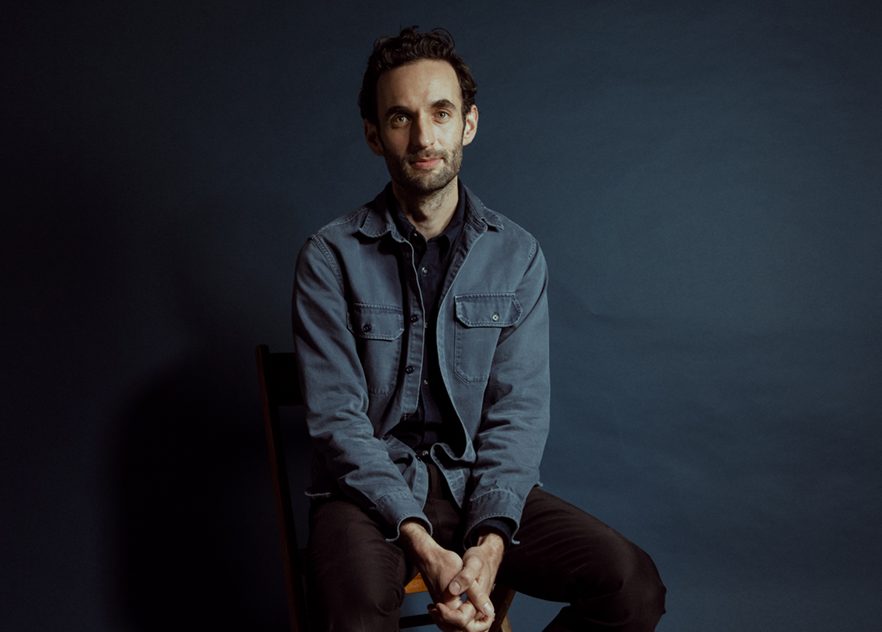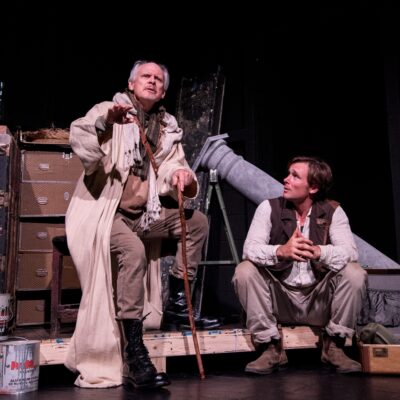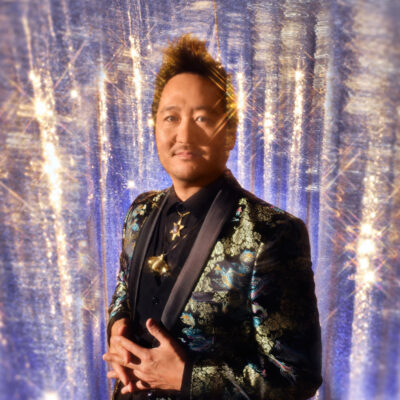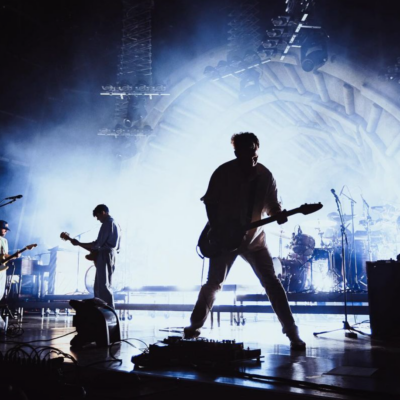By Dave Cantor
The opening track of Julian Lage’s first Blue Note album is titled “Etude”—a nod, perhaps, to the lifetime he’s spent studying his instrument.
The guitarist, who came to national attention in a short 1996 documentary focused on his prodigious talents called Jules at Eight, has been recording as a bandleader for just over a decade. And while he’s covered a lot of territory—moving from larger ensembles to trios and working alongside jazz luminaries like Gary Burton and Nels Cline—Squint marks Lage’s ascent to a legendary imprint. It’s a label aiming to find a new generation of players to help forge a path ahead for jazz, recently releasing albums by drummer/producer Makaya McCraven and vibraphonist Joel Ross, among others.
“My obsession with Blue Note, its artistic integrity, releasing progressive music rooted in African-American traditions, improvisational traditions—[it’s] just a label that does amazing stuff and supports artists as they evolve,” Lage says over the phone from New York, while packing to embark on a handful of European dates before Thursday’s gig at the Southern in Charlottesville. “There’s one way of looking at it for me, which is that I’m being included on a train that’s been moving forward for 80 years.”
Squint continues a compositional refinement that began following the guitarist’s first release, 2009’s Sounding Point, and narrowed in focus as Lage grew interested in improvisation and writing more for himself, as opposed to his ensemble. With the trio here—bassist Jorge Roeder and Bad Plus drummer Dave King—the guitarist enjoys the drive of a power trio with the adaptability of a small jazz combo.
“I definitely like that it’s a precarious orchestration,” Lage says about his current ensemble. “There’s a lot that’s not in there. A lot of it’s implied—by the listener, by us. There’s a lineage of the guitar trio, in jazz at least, being a metric for a player’s creative output. Same with piano trios and saxophone trios.”
If Squint is intended as proof of Lage’s expanding compositional acumen, there are more than a few moments that spotlight his unique voice. “Boo’s Blues,” the album’s second track, comes off like a cowboy-indebted jazz tune. There’s the swing of Sonny Rollins’ “Way Out West” (a 1957 trio effort), but an overwhelming affinity for blues propels the track, King sitting back in the pocket. The following title track functions much the same way, though Lage takes a more aggressive approach.
“There’s a comfort in the way the guitar sits on the record that I’ve been pursuing,” the bandleader says. “And I think we kind of found a nice balance, largely because Squint is such a jazz record—from my perception—a jazz record, a swing record, a Blue Note record.”
A few noisier tunes crop up, though. The finer moments of “Familiar Flower” spring from the overdrive Lage bathes his guitar in, and the soloing on “Day and Age” might find a suitable home on a rock album. But nothing here places Squint outside of Blue Note’s purview, especially considering the release of 2018’s rock-indebted Currents, Constellations, helmed by Cline, with contributions from Lage.
Some of Lage’s more radical inclinations—at least when examined through the historic lens of the jazz genre—were ratified by working with Cline in a variety of contexts. The older guitarist’s own discography spans membership in Wilco and detours through jazz, rock, and experimental worlds.
“Nels was at the intersection of the avant-garde and songs—and so much more. Absolutely, my friendship with him has encouraged me and made me feel that I don’t have to pick sides. You can do what you like—and that’s hugely helpful,” Lage says. “The number of records Nels has made—his trio and the Nels Cline Singers. Talk about guitar trios? He has such a broad and brilliant catalog. And we play very differently, but I think we played in a complementary way.”
Even with that expansive vision as a guide, a handful of songs on Squint seem to accidentally hone in on Lage’s past: “Saint Rose,” “Twilight Surfer” and an interpretation of “Call of the Canyon” appear tied more to Lage’s childhood on the West Coast than New York clubs.
“‘Saint Rose’ is a deliberate tribute to Santa Rosa and the region—the fires,” Lage says, while disavowing any concerted effort to focus other tunes on remembrances of his California youth. “But there is a spirit of—what would you call it? Early electric guitar, surf guitar, Hawaiian slide guitar…things that have grown out of California—they’ve always been important to me. They might be so embedded in me that it just comes out in the music.”
Enthused about the path he’s forging in the jazz world, Lage recognizes that a wealth of possibilities await—especially after the pandemic. He admirably expresses that disposition across the 11 tunes on Squint.
“You don’t have to look far with music to feel hopeful,” the band leader says. “I was in a privileged position to make music that was almost like a prayer, rather than an exhibition of what I can do.”
Julian Lage
The Southern Café & Music Hall
December 9






